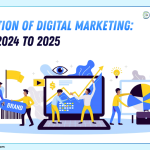The Power of User Engagement in Digital Marketing

In today’s world, digital marketing has become an essential tool for businesses to grow their reach and connect with their target audience. One of the key factors that determine the success of a digital marketing strategy is user engagement. It refers to the level of interaction between a user and a brand’s online content. The higher the level of engagement, the more likely it is that the digital marketing strategy will be successful. In this article, we will discuss the power of user engagement in digital marketing and how businesses can harness it to achieve their marketing goals.
Definition of User Engagement
User engagement is the measure of the amount of interaction that users have with a brand’s digital content, such as website pages, social media posts, or email campaigns. This interaction can include likes, comments, shares, clicks, and other types of engagement that users have with a brand’s online presence.
Why User Engagement Matters
User engagement is essential for the success of a digital marketing strategy for several reasons. First, it helps businesses build a relationship with their target audience. Hence, by engaging with users and providing them with valuable content, businesses can establish themselves as a trusted source of information in their industry. Second, it can drive traffic to a brand’s website and social media profiles, increasing their online visibility. Finally, user engagement can lead to increased sales and revenue, as users who are engaged with a brand are more likely to become loyal customers.
How to Measure User Engagement
There are several metrics that businesses can use to measure user engagement, including likes, comments, shares, clicks, and bounce rates. Likes, comments, and shares are typically used to measure engagement on social media platforms, while clicks and bounce rates are used to measure engagement on a brand’s website. Therefore, by monitoring these metrics, businesses can gain valuable insights into the effectiveness of their digital marketing strategies and make adjustments as needed.
Techniques to Increase User Engagement
There are several techniques that businesses can use to increase user engagement. First, they can create high-quality, valuable content that is relevant to their target audience. This content should be visually appealing and easy to consume. Second, businesses can encourage user engagement by asking for feedback and responding to comments and questions in a timely manner. Third, they can use social media platforms to engage with users by posting regularly and responding to comments and messages. Finally, businesses can use email marketing campaigns to engage with users by providing them with relevant content and special offers.
The Role of User-Generated Content
User-generated content is an effective way to increase engagement. User-generated content refers to content that is created by users, such as reviews, testimonials, and social media posts. By encouraging users to create and share content, businesses can increase their online visibility and establish themselves as a trusted source of information in their industry. User-generated content also helps businesses build a community around their brand, which can lead to increased loyalty and sales.
How to Use Engagement to Improve SEO
User engagement can also help businesses improve their search engine rankings. Search engines like Google use engagement metrics, such as bounce rates and time spent on a page, to determine the relevance and quality of a website. By creating engaging content and encouraging engagement, businesses can improve these metrics and improve their search engine rankings. This, in turn, can lead to increased traffic and revenue.
The Future
As digital marketing continues to evolve, user engagement will remain an essential factor in its success. Businesses that are able to effectively engage with their target audience will be better positioned to achieve their marketing goals and stand out in an increasingly crowded online marketplace. In the future, we can expect to see new technologies and platforms emerge that will allow businesses to engage with users in new and innovative ways.
In conclusion, user engagement is a critical component of a successful digital marketing strategy. By creating high-quality content, encouraging user-generated content, and engaging with users through social media and email marketing campaigns, businesses can establish themselves as trusted source of information in their industry and increase their online visibility. Additionally, by using engagement metrics to improve their search engine rankings, businesses can increase their traffic and revenue.
However, it is important to remember that it is not a one-time effort. It requires consistent effort and attention to create and maintain relationships with users. Businesses should continue to monitor their engagement metrics and make adjustments to their strategies as needed to ensure that they are effectively engaging with their target audience.






